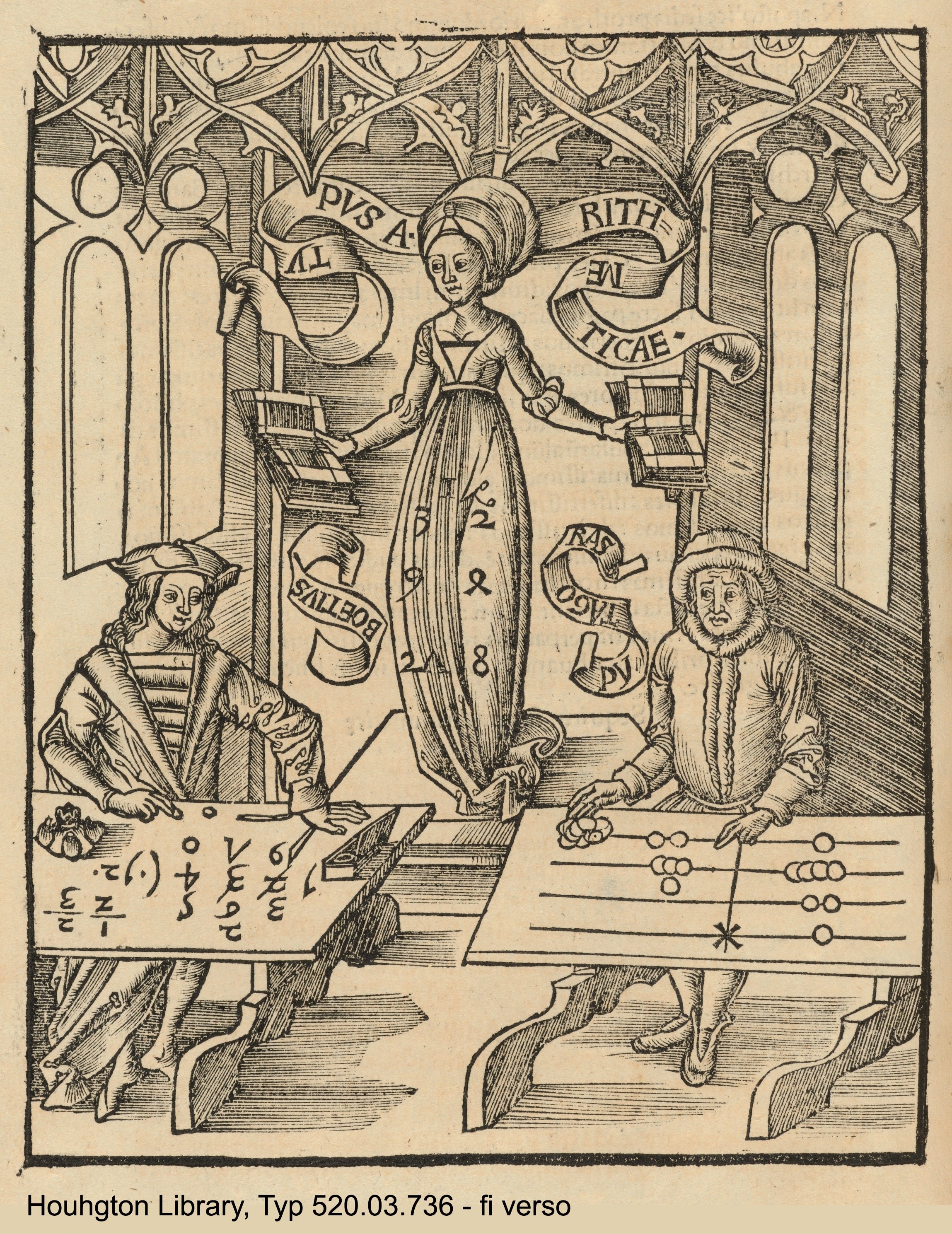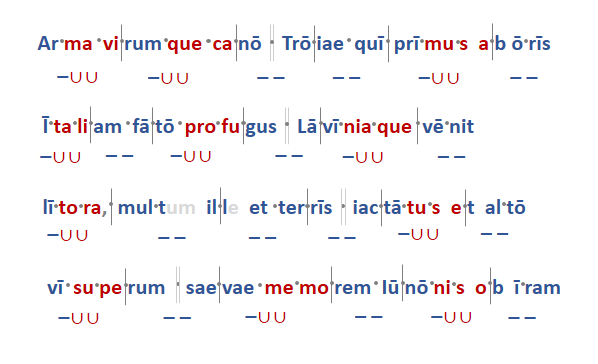|
Alexander De Villa Dei
Alexander of Villedieu was a French writer, teacher and poet, who wrote text books on Latin grammar and arithmetic, everything in verse. He was born around 1175 in Villedieu-les-Poêles in Normandy, studied in Paris, and later taught at Dol in Brittany. His greatest fame stems from his versified Latin grammar book, the ''Doctrinale Puerorum''. He died in 1240, or perhaps in 1250. He was a Franciscan and a Master of the University of Paris. His ''Doctrinale puerorum'', a versified grammar, soon became a classic. It was composed around 1200, and was all written in '' leonine hexameters''. Even after several centuries, with the advent of printing, it appeared in countless editions in Italy, Germany and France. It was based on the older works of Donatus and Priscian. Alexander also wrote a short tract on arithmetic called ''Carmen de Algorismo''—''the Poem about Arithmetic'', which also achieved a wide distribution.While the ''Doctrinale'' was in leonine verse, the ''Carme ... [...More Info...] [...Related Items...] OR: [Wikipedia] [Google] [Baidu] |
Schedel Weltchronik CCXIIII Alexander-de-Villa-Dei
Schedel is a German surname. It has also a variant, Schèdel. Notable people with the surname include: * Abraham Schedel (fl. c. 1600), Bohemian printer and corrector for the press * Hartmann Schedel Hartmann Schedel (13 February 1440 – 28 November 1514) was a German historian, physician, humanist, and one of the first cartographers to use the printing press. He was born and died in Nuremberg. Matheolus Perusinus served as his tutor. ... (1440–1514), German physician, humanist, historian, cartographer and printer * Josef Maria Schedel (1856–1943), German apothecary and orientalist collector * Sebastian Schedel (1570–1628), German painter and illustrator * Sebastian Schedel (politician), a German politician References {{DEFAULTSORT:Schedel Surnames of German origin ... [...More Info...] [...Related Items...] OR: [Wikipedia] [Google] [Baidu] |
Hexameter
Hexameter is a metrical line of verses consisting of six feet (a "foot" here is the pulse, or major accent, of words in an English line of poetry; in Greek as well as in Latin a "foot" is not an accent, but describes various combinations of syllables). It was the standard epic metre in classical Greek and Latin literature, such as in the ''Iliad'', '' Odyssey'' and ''Aeneid''. Its use in other genres of composition include Horace's satires, Ovid's '' Metamorphoses,'' and the Hymns of Orpheus. According to Greek mythology, hexameter was invented by Phemonoe, daughter of Apollo and the first Pythia of Delphi. __TOC__ Classical hexameter In classical hexameter, the six feet follow these rules: * A foot can be made up of two long syllables a spondee; or a long and two short syllables, a dactyl * The first four feet can contain either one of them. * The fifth is almost always a dactyl, and last must be a spondee / trochee (together forming an adonic). Exceptions can o ... [...More Info...] [...Related Items...] OR: [Wikipedia] [Google] [Baidu] |
French Franciscans
French may refer to: * Something of, from, or related to France ** French language, which originated in France ** French people, a nation and ethnic group ** French cuisine, cooking traditions and practices Arts and media * The French (band), a British rock band * "French" (episode), a live-action episode of ''The Super Mario Bros. Super Show!'' * ''Française'' (film), a 2008 film * French Stewart (born 1964), American actor Other uses * French (surname), a surname (including a list of people with the name) * French (tunic), a type of military jacket or tunic * French's, an American brand of mustard condiment * French (catheter scale), a unit of measurement * French Defence, a chess opening * French kiss, a type of kiss See also * France (other) * Franch, a surname * French Revolution (other) * French River (other), several rivers and other places * Frenching (other) Frenching may refer to: * Frenching (automobile), recessing or mou ... [...More Info...] [...Related Items...] OR: [Wikipedia] [Google] [Baidu] |
People From The Duchy Of Normandy
The term "the people" refers to the public or Common people, common mass of people of a polity. As such it is a concept of human rights law, international law as well as constitutional law, particularly used for claims of popular sovereignty. In contrast, a people is any plurality of Person, persons considered as a whole. Used in politics and law, the term "a people" refers to the collective or community of an ethnic group or nation. Concepts Legal Chapter One, Article One of the Charter of the United Nations states that "peoples" have the right to self-determination. Though the mere status as peoples and the right to self-determination, as for example in the case of Declaration on the Rights of Indigenous Peoples, Indigenous peoples (''peoples'', as in all groups of indigenous people, not merely all indigenous persons as in ''indigenous people''), does not automatically provide for independence, independent sovereignty and therefore secession. Indeed, judge Ivor Jennings i ... [...More Info...] [...Related Items...] OR: [Wikipedia] [Google] [Baidu] |
1240 Deaths
Year 1240 ( MCCXL) was a leap year starting on Sunday of the Julian calendar. Events By place Europe * May 24 – Duke Skule Bårdsson, claimant to the Norwegian throne, is defeated by King Haakon IV (the Old) and his supporters. He seeks refuge in Elgeseter Priory in Trondheim, and Haakon burns down the monastery, in which Skule is burned alive. Haakon becomes the undisputed ruler; this ends the civil war era in Norway, after 110 years. * July 15 – Battle of the Neva: A Swedish army under Bishop Thomas sails up the Gulf of Finland in their longboats. They proceed into the Neva River with the aim of seizing control over Lake Ladoga and from there, striking at the city of Novgorod. Prince Alexander rallies his '' druzhina'' comparable to the 'household' of western European countries, and decisively routs the Swedish forces, saving the Novgorod Republic from a full-scale enemy invasion from the North. As a result, Alexander wins his first military vic ... [...More Info...] [...Related Items...] OR: [Wikipedia] [Google] [Baidu] |
1170s Births
117 may refer to: *117 (number) *AD 117 * 117 BC * 117 (emergency telephone number) * 117 (MBTA bus) * 117 (TFL bus) * 117 (New Jersey bus) *''117°'', a 1998 album by Izzy Stradlin * 117 Lomia, a main-belt asteroid *Isuzu 117 Coupé, a fastback coupé See also * List of highways numbered 117 *Tennessine, synthetic chemical element with atomic number 117 *11/7 (other) * *17 (other) *B117 (other) *F-117 (other) F-117 The Lockheed F-117 Nighthawk is an officially retired American single-seat, subsonic, Twinjet, twin-engined, stealth aircraft, stealth attack aircraft developed by Lockheed Corporation, Lockheed's secretive Skunk Works division and ope ... * John-117, the 'Master Chief,' a fictional supersoldier from the Halo series. {{Numberdis ... [...More Info...] [...Related Items...] OR: [Wikipedia] [Google] [Baidu] |
Algorism
Algorism is the technique of performing basic arithmetic by writing numbers in place value form and applying a set of memorized rules and facts to the digits. One who practices algorism is known as an algorist. This positional notation system has largely superseded earlier calculation systems that used a different set of symbols for each numerical magnitude, such as Roman numerals, and in some cases required a device such as an abacus. Etymology The word ''algorism'' comes from the name Al-Khwārizmī (c. 780–850), a Persian mathematician, astronomer, geographer and scholar in the House of Wisdom in Baghdad, whose name means "the native of Khwarezm", which is now in modern-day Uzbekistan. He wrote a treatise in Arabic language in the 9th century, which was translated into Latin in the 12th century under the title ''Algoritmi de numero Indorum''. This title means "Algoritmi on the numbers of the Indians", where "Algoritmi" was the translator's Latinization of Al ... [...More Info...] [...Related Items...] OR: [Wikipedia] [Google] [Baidu] |
Square Root
In mathematics, a square root of a number is a number such that y^2 = x; in other words, a number whose ''square'' (the result of multiplying the number by itself, or y \cdot y) is . For example, 4 and −4 are square roots of 16 because 4^2 = (-4)^2 = 16. Every nonnegative real number has a unique nonnegative square root, called the ''principal square root'' or simply ''the square root'' (with a definite article, see below), which is denoted by \sqrt, where the symbol "\sqrt" is called the '' radical sign'' or ''radix''. For example, to express the fact that the principal square root of 9 is 3, we write \sqrt = 3. The term (or number) whose square root is being considered is known as the ''radicand''. The radicand is the number or expression underneath the radical sign, in this case, 9. For non-negative , the principal square root can also be written in exponent notation, as x^. Every positive number has two square roots: \sqrt (which is positive) and -\sqrt (which i ... [...More Info...] [...Related Items...] OR: [Wikipedia] [Google] [Baidu] |
Dactylic Hexameter
Dactylic hexameter is a form of meter used in Ancient Greek epic and didactic poetry as well as in epic, didactic, satirical, and pastoral Latin poetry. Its name is derived from Greek (, "finger") and (, "six"). Dactylic hexameter consists of six feet. The first five feet contain either two long syllables, a spondee (– –), or a long syllable followed by two short syllables, a dactyl (–ᴗᴗ). However, the last foot contains either a spondee or a long syllable followed by one short syllable, a trochee(– ᴗ). The six feet and their variation is symbolically represented below: The hexameter is traditionally associated with classical epic poetry in both Greek and Latin. Consequently, it has been considered to be ''the'' grand style of Western classical poetry. Examples of epics in hexameter are Homer's ''Iliad'' and ''Odyssey'', Apollonius of Rhodes's ''Argonautica'', Virgil's ''Aeneid'', Ovid's ''Metamorphoses'', Lucan's ''Pharsalia'', Valerius Flaccus's ''Argona ... [...More Info...] [...Related Items...] OR: [Wikipedia] [Google] [Baidu] |
Priscian
Priscianus Caesariensis (), commonly known as Priscian ( or ), was a Latin grammarian and the author of the ''Institutes of Grammar'', which was the standard textbook for the study of Latin during the Middle Ages. It also provided the raw material for the field of speculative grammar. Life The details of Priscian's life are largely unknown. Priscian was born and raised in the North-African city of Caesarea (modern Cherchell, Algeria), the capital of the Roman province of Mauretania Caesariensis, which during his lifetime would be under the control of the Vandalic Kingdom. He was probably of Greek descent. According to Cassiodorus, he taught Latin at Constantinople in the early sixth century. His minor works include a panegyric to Anastasius (491—518), written about 512, which helps establish his time period. In addition, the manuscripts of his ''Institutes'' contain a subscription to the effect that the work was copied (526, 527) by Flavius Theodorus, a clerk in the im ... [...More Info...] [...Related Items...] OR: [Wikipedia] [Google] [Baidu] |


